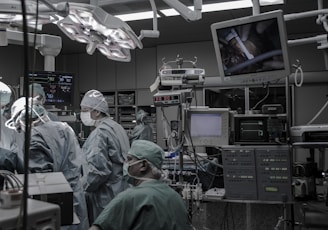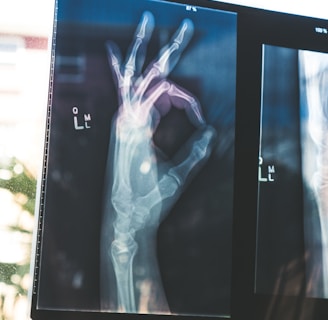THz Band
Current and Projected Communication Uses


Exploring the Terahertz (THz) Frequency Band:
A Revolution in Communication and Medicine
Discover how our groundbreaking projects in Terahertz technology are pushing the boundaries of imaging, communication, and medical applications.


Current Applications:
Spectroscopy: THz waves are used for spectroscopic analysis, enabling the identification of chemical compounds and materials based on their unique spectral fingerprints. This has applications in security, quality control, and material analysis.
Wireless Data Transfer: Researchers are exploring THz waves for ultra-fast wireless data transfer. While this technology is still in the experimental stage, it holds the promise of significantly faster data transfer rates compared to current wireless technologies.
Projected Uses:
5G and Beyond: The demand for high-speed, low-latency wireless communication is driving research into THz technology for 5G and future generations of wireless networks. THz waves could enable faster and more reliable wireless communication, especially in densely populated urban areas.
Terahertz Imaging: THz imaging technology is advancing rapidly and is projected to find applications in airport security, medical imaging, and industrial quality control. It could revolutionize security screening processes and enable non-invasive medical diagnostics.
Medical Requirements and Uses
Current Applications:
Spectroscopy for Disease Detection: THz spectroscopy has shown promise in detecting diseases such as cancer and diabetes by analyzing the unique THz spectral signatures of biological tissues. It can provide valuable insights into the early stages of disease development.
Medical Imaging: THz imaging is being explored for medical applications, offering the potential for non-invasive imaging of biological tissues. It could be used for early cancer detection, wound assessment, and studying the structure of biological molecules.
Projected Uses:
Early Cancer Detection: THz technology has the potential to detect cancerous tissue at very early stages, improving treatment outcomes and reducing the need for invasive procedures.
Non-Invasive Blood Glucose Monitoring: THz spectroscopy may enable non-invasive monitoring of blood glucose levels for diabetic patients, eliminating the need for painful finger-prick tests.


Unlock the full potential of your online presence with this exceptional DomainAnd.Website.
Fully functional and optimized for SEO, it's the perfect platform to showcase your brand and attract customers.
